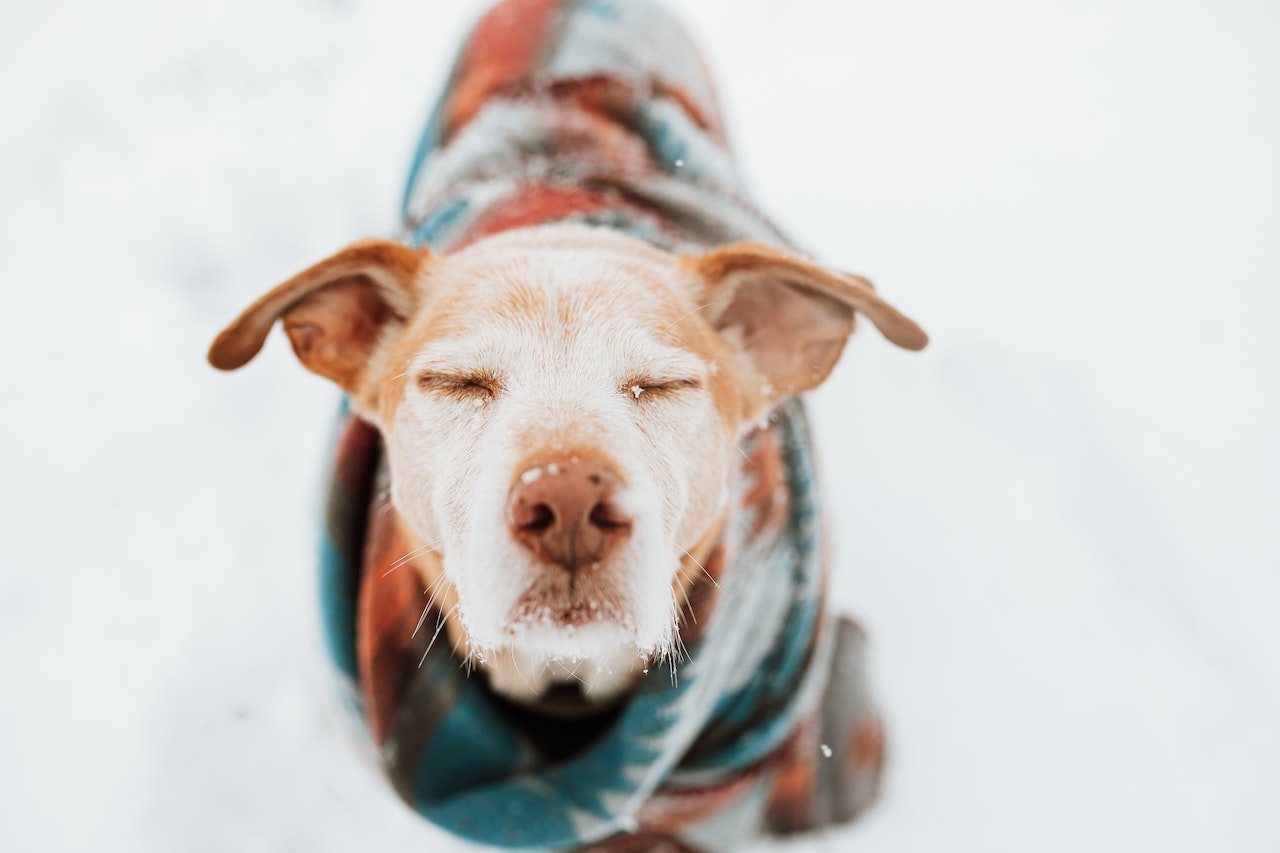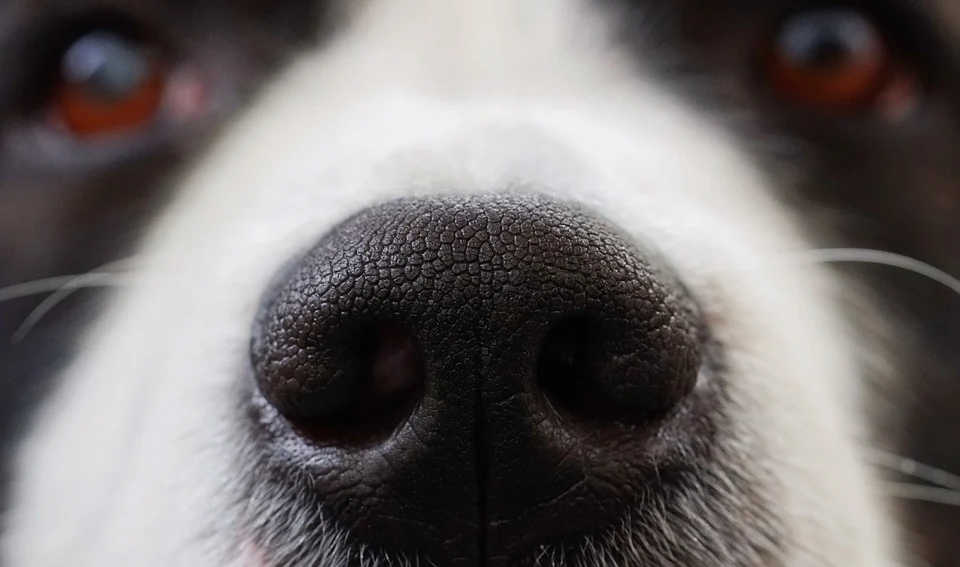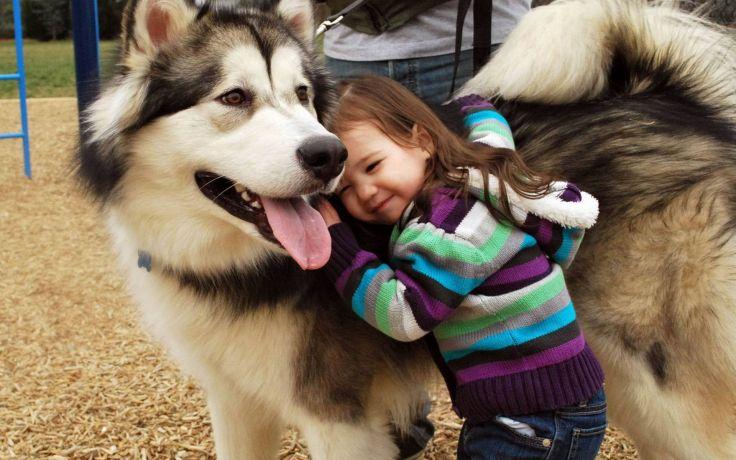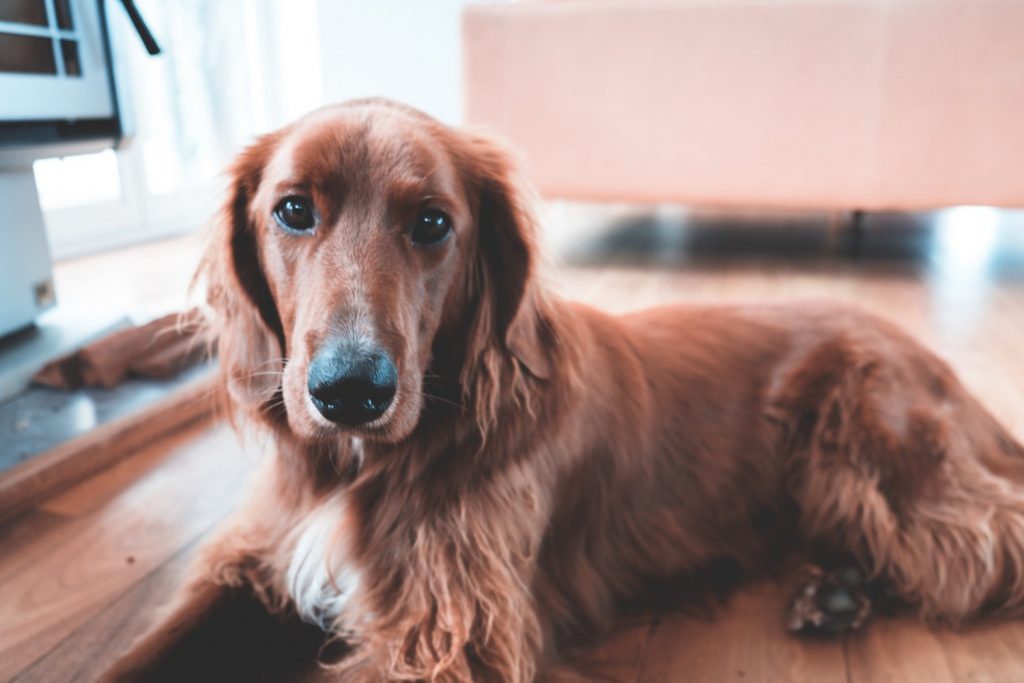
Like their human relatives, dogs sometimes find themselves unable to control an uncontrollable bout of sneezing. Whether your dog sneezes for a few minutes at a time or has been sneezing for days, you may be perplexed as to the cause. There could be a number of reasons why your dog is sneezing, from seasonal allergies to an irritant in the nasal passage. Although this usually isn’t cause for alarm, persistent sneezing might be a sign of trouble.
You should find out why your dog could be sneezing and go to a professional to get a correct diagnosis before attempting to cure their sneezing. In this piece, we’ll discuss some of the potential causes of your dog’s incessant sneezing and provide some advice for calming him down.
Allergies to Food

Dogs with food allergies are more frequent than their owners realize. Beef, dairy, chicken, and wheat are some of the most often reported food allergies. An inflammatory reaction in the body is responsible for post-meal sneezing in pets with food allergies; however, you and your veterinarian may utilize an elimination diet to determine the offending item and thereby prevent future episodes of sneezing.
Diets high in new proteins are used to help people with food allergies overcome their symptoms.
Instead of the typical meat proteins found in the pet food aisle of the grocery store, your veterinarian may recommend an alternative protein source such as alligator, kangaroo, or rabbit. If you feel your dog has food allergies, you should see your veterinarian immediately, since these foods are usually part of a specialized diet that requires a prescription.
Common symptoms of dog food allergies include itchy skin, hair loss, and gastrointestinal issues. There is also a chance that your dog could become hyperactive or lose weight. Sneezing is not a typical symptom of a food allergy, although it might happen if you have one.
To identify potential allergens, your veterinarian will draw blood from your dog and analyze it using a radioallergosorbent (RAST) system. However, your veterinarian may want to do an elimination diet to see whether the problem is a food allergy. During the course of a few months, your dog will consume a new protein, and you will track his or her progress or decline in health. If your dog’s symptoms persist after switching his diet, your veterinarian may recommend further testing to rule out conditions other than food allergies.
Seasonal Allergies

Sneezing in dogs is often caused by seasonal allergies. Allergens in the environment, such as pollen, mold, dander, and dust, are a common cause of seasonal allergies in both humans and canines. Seasonal allergies have a wide range of symptoms that may be triggered by a wide range of allergens. Furthermore, dog allergies may cause these additional symptoms:
- Watery eyes: Watery eyes are a typical symptom of allergies in dogs, just as they are in people. Depending on the time of year, allergies or the weather could be to blame for your dog’s increased tearing. It might well be that spring and summer bring on allergy season for your dog. Make sure to keep an eye on their eyes to see if the condition improves over time.
- Runny nose: Dogs naturally have wet noses, but if your dog has a runny nose, it could mean they’re either sick or have allergies. As we’ve stated, allergies are common, especially after the winter, so if your dog is sneezing because of seasonal allergies, it may also have a runny nose.
- Congestion and/or dog mucus: Congestion is common in dogs with allergies, but so are running noses and excess mucus.
- Itchy skin: Seasonal allergies might also cause skin allergies because dust and other allergens can cause reactions on your dog’s skin. During spring, your dog might get itchy skin after playing outside due to pollen.
- Dirty ears and ear infections: Ear infections are common in dogs with allergies; they stink badly and may turn your dog’s earwax a dark brown or even black color. Take your dog to the clinic promptly if you suspect an ear infection, before the illness spreads and causes discomfort.
Dry coughing or wheezing in your dog at particular times of year is a sign of seasonal allergies. But if your dog has never wheezed before, it might be a sign of serious illness. If your pet seems to be having trouble breathing, get them to the closest emergency clinic.
There is no easy way to tell whether your dog has skin allergies, food allergies, or both. In contrast to food allergies, which only last as long as your dog continues to eat the offending substance, seasonal allergies tend to manifest at a certain time of year.
Doctors of veterinary medicine may use skin testing that mimics allergy testing to identify seasonal allergies. Your veterinarian may recommend an allergy injection for your dog if the response is severe enough. However, antihistamines are often given to dogs during allergy season to alleviate their discomfort.
However, before giving your dog an antihistamine, you should talk to your vet. Many veterinarians will recommend Benadryl for your dog, but only they can tell you how much to administer and how frequently. Never attempt to treat your dog’s allergies on your own without first seeing a vet, since doing so might be fatal.
Toy with a Sneeze

When you play with your dog, how often do you go down on the floor with him? Maybe you two play tag or maybe you get down and dirty with a little wrestling action. It’s possible that your dog will sneeze at you during any game you play with him. Your dog is trying to tell you something by feigning sneezing. Most experts agree that when a dog pretends to sneeze, it’s attempting to reassure the other animal or human it’s playing with that it’s simply having fun and isn’t really trying to harm them.
Your dog may even come up to you and sneeze and play with you in an effort to get you to pet them. Play sneezing usually consists of individual sneezes rather than continuous sneezing, but this can vary from dog to dog. If your dog is only trying to tell you that playtime has arrived, you shouldn’t be alarmed by their persistent sneezing.
Sneezing in a playful manner is your dog’s method of expressing himself and is usually harmless. You may be greeted with a few sneezes from your dog if he or she is really thrilled to see you after a long day at the office.
Nasal Mites

Dogs of any age, breed, or sex may be infected with nasal mites. It is possible for these mites, which dwell in your dog’s nasal passages and sinuses, to be spread from one dog to another via both close and distant contact. Because they irritate and inflame the sinuses, nasal mites may make your dog sneeze violently. Bloody nasal discharge is a common symptom of nasal mites in dogs. Nasal mites are unusual but may be remedied with antiparasitic drugs.
Signs of nasal mites include sneezing and/or a bloody nose in your dog. It’s advisable to have your dog checked out by a vet as soon as possible if it seems to have mites, since these parasites may cause discomfort for your dog and spread to other canines, including those in your home.
Nasal Carcinoma

While more frequent in older dogs and male canines, nasal tumors account for roughly 1% to 2% of all canine tumors. Most nasal tumors are malignant, and dogs with longer or medium nose lengths are more likely to develop them. A nasal tumor in a dog may spread to the lymph nodes, lungs, and brain, making prompt veterinary attention essential.
An uncommon sign of nasal tumors is excessive or uncontrolled sneezing. Nasal tumors can result in difficulty breathing through the nose and a bloody discharge. Additionally, your dog may sound like it is snorting rather than sneezing due to congestion in its nasal passages. Depending on the dog’s age, radiation treatment or chemotherapy may be used to treat nasal tumors.
Having a Nasal Infection

Your dog may have a sinus infection, one of the most prevalent causes of incessant sneezing. Inflammation of the sinuses is a typical complication of upper respiratory illnesses including rhinitis and sinusitis. Uncontrollable sneezes may be caused by a bacterial or fungal infection of the upper respiratory system. Postnasal drip may also cause bleeding in the nose, loss of appetite, and coughing in dogs.
Sinus infections in dogs may be caused by a number of different things, including allergies, a compromised immune system, cancer, or even something as simple as a blade of grass being lodged in the nasal passage. However, there are a variety of factors that might lead to a stuffy nose.
Take your dog to the doctor if you suspect a nasal infection so it may be treated with antibiotics or other medicines.
A Stranger Thing

Your dog needs its nose to explore its environment, so when you take them for a walk, it may end up with bits of grass, tiny pebbles, dirt, or even bugs trapped up its nose. As a defense mechanism, your dog’s body will sneeze away any foreign object that becomes lodged in its nasal passages.
When you take your dog for a walk and he or she begins sneezing, don’t automatically attribute it to seasonal allergies. Instead, you should carefully examine their nasal cavity to rule out the possibility that a blade of grass or other foreign item is lodged inside. The majority of the time, a dog will sneeze out a foreign item or cooperate enough for you to take it out. Your dog’s sneezing should subside after you take the offending item away.
Get your dog to the clinic quickly if you think anything is stuck in its nose. Overwhelming sneezing, pawing at the face, and bloody mucus are all indications that something is lodged in your dog’s nose. Your veterinarian will examine your dog’s nasal cavity to see whether the obstruction may be surgically removed.
Illnesses Affecting the Teeth

Sinus inflammation is the underlying cause of sneezing in dogs, and dental problems including tumors, tooth decay, and oral infections may all contribute to this problem. Sinusitis may also be brought on by dental problems. Investigate the canine’s mouth if you suspect he or she has a dental problem. A dental checkup, including teeth cleaning and x-rays, may help you make sure your dog’s gums and teeth are healthy if you’ve seen any unusual lumps or bumps.
Having a Sneeze Backwards

When your dog sneezes, do you hear a sound that sounds like a sneeze but isn’t quite? An involuntary respiratory response, reverse sneezing involves rapidly inhaling air via the nostrils. 6 Even though sneezing in reverse is common, it often sounds like someone is choking or gagging. It’s possible that your dog’s reverse sneezing is an instinctive reaction to irritation or inflammation that helps clear its airways of allergens and foreign matter.
If it only occurs sometimes, reversing sneezing is usually safe. If your dog does this regularly, though, it may be a sign that he or she has allergies, in which case your veterinarian will likely prescribe an antihistamine.
Frequently Asked Questions About Dogs With Runny Noses
If my dog starts sneezing, when should I take him to the vet?
It may not be an emergency if your dog continues sneezing. Instead, it may be an indication of seasonal allergies that you and your veterinarian may address on your next visit. There is no need to worry if your dog suffers from seasonal sneezing attacks every spring due to pollen, dust, or mold; seasonal allergies are not life-threatening and your dog may have a happy, healthy life despite them.
On the other hand, if your dog has a bloody nasal discharge or is constantly sneezing, it may have mites or another condition, such as a tumor, that is affecting its capacity to breathe. Taking your dog to the doctor right away is essential if you notice that it is sneezing blood. If your dog has a fever or nasal swelling, they need to see a vet immediately.
In addition, if your dog is wheezing and doesn’t often do so, it may be in need of medical treatment. A wheezing sound may also accompany your sneezes. A wheezing dog may be suffering from seasonal allergies or asthma, but if accompanied by a cough, it may be a clue that he has taken one of the various poisons available for dogs. If your dog is having trouble breathing, you should get them to the closest emergency clinic.
Is it possible that chronic sneeze indicates a more severe problem?
Sneezing in dogs is usually not a sign of anything life-threatening, and it may simply be your dog’s method of clearing his or her airways of dust and other allergens. Your dog may sneeze to show that they are enthusiastic but not attempting to be aggressive while they are playing or joyful.
Sneezing is a common condition, but tracheal collapse may occur if it persists or if it sounds like honking or an inability to breathe. A highly hazardous medical issue, tracheal collapse is more common in toy and miniature breeds of dogs.
Your dog’s breathing abilities will be permanently compromised by tracheal collapse, a condition of the trachea. When the trachea collapses, it causes coughing, shortness of breath, and wheezing. Your dog’s sneezes may sound more like honking than a regular sneeze. In response to test results, your veterinarian may recommend plastic rings be surgically implanted around your dog’s trachea, or they may choose for medicinal management, which includes weight reduction and medication.
However, chronic sneezing is usually only a symptom of seasonal allergies in dogs, which can be treated with antihistamines, and is not an indication of anything more severe.
How common is sneezing in dogs, and which breeds are most susceptible?
Every dog has a bout of the sniffles every once in a while, but those with flatter faces tend to sneeze more often (brachycephalic). Several dog breeds, including the Pekingese, Boxer, Pug, French and English Bulldogs, and the Boston Terrier, are considered to have brachycephalic skulls. It’s possible for dogs with flatter faces to snort, which is similar to a sneeze but results in a distinct sound.
Naturally, any dog, particularly an allergic one, is prone to sneezing. Canines of all shapes and sizes may sneeze when exposed to allergens like dust and pollen since sneezing is a normal reaction for dogs. In addition, if a dog gets dirt in his or her nose when smelling the ground and roaming outdoors, it will sneeze.
The sneeze in my dog, can I cure it at home?
Never attempt to cure your pet’s sneezing or any other ailment on your own without first contacting a professional. Depending on the severity of your dog’s seasonal allergies, it may be as easy as phoning your doctor and asking for advice. Sometimes a phone call won’t be enough for your vet to determine why your dog is sneezing so much.
It’s not good for your pet’s health if you try to treat it on your own without first seeing a vet. Antihistamines available without a prescription, for instance, may be given to dogs in the right amounts without risk. However, they may be poisoned by some people. As an added downside, if your pet’s sneeze hasn’t been properly identified, you can be giving them the incorrect medication. Taking your dog to the doctor and explaining the symptoms, when they first appeared, and how frequently your dog sneezes is far better than attempting to cure it yourself.
Before prescribing a course of medication to assist your pet stop sneezing, a veterinarian will likely undertake tests to pinpoint the precise trigger of your pet’s sneezing.
In Conclusion
There are a few potential causes for your dog’s persistent sneezing. Your dog will sneeze if they are allergic to anything, or if an allergen like dust suddenly appears in the environment. Sneezing is also a common way for dogs to express themselves to one another and their human companions. Sneezing is a kind of communication used by dogs to express joy and playfulness; if your dog comes up to you and sneezes, it may be trying to tell you that it wants to play.
While most sneezing is harmless, there are situations when your dog’s sneezing might be harmful. Dog allergies are rarely life-threatening, but they might prevent your dog from enjoying activities like digging in the yard, so it’s important to see your veterinarian to find a remedy. Your dog’s health and well-being may be jeopardized by a more serious cause of sneezes, such as a sinus infection or tumor.
The best course of action is to see a veterinarian if your dog has persistent sneeze problems. Your veterinarian can help you figure out what’s causing your pet’s sneeze and provide medication or other care. You are the expert on your dog. They may have a pollen allergy if they start sneezing when they go for walks. But if your dog sneezes constantly no matter where they are or what they’re doing, it might be a sign of something more severe. If your dog’s sneezing is making you nervous, it’s best to take him to a doctor who can assist.